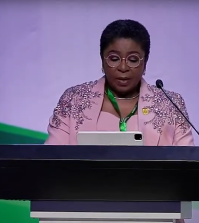Pensions reform aims to tackle Brazilian deficit

Violent clashes outside Brazil’s parliament have underlined fierce opposition to pension reforms, aimed at balancing the country’s troubled public finances, which could raise the minimum retirement age to 65.
Off-duty federal police officers were among 500 demonstrators repelled by riot squads after trying to storm the National Congress building in Brasilia as a committee of the lower house prepared to discuss a bill that has major implications for public sector workers.
Under Brazil’s social security system, many people qualify to retire in their 50s based on their contribution records or job category, with public sector workers retiring on average at the age of 54. There are broad exemptions to payroll contributions for various sectors, and the system is considered generous towards senior public servants and military retirees.
The proposed reform designed to help close a yawning fiscal deficit and bring Brazil into line with other Latin American countries, which have radically restructured their retirement systems since the 1980s. Brazilian governments have delayed reform, or have introduced new national contributions to plug deficits, in order to avoid political strife. As a result the country’s total pension expenditure is among the highest in the world, reaching about 11.3% of GDP in 2015.
An ageing population and rising replacement rates – the ratio of the average benefit received by pensioners to the average salary of active workers – have combined with job losses caused by a two-year recession linked to falling commodity prices to increase the pensions burden. The IMF has been among organizations calling for reform, arguing that pension spending in Brazil could rise to about 14% of GDP by 2021 as the ratio of older dependents to the working-age population grows.
In December 2016 Brazil’s government passed a constitutional amendment capping public spending growth at the previous year’s inflation rate – a measure that would prove hard to fulfil without pension reform. Brazil ran a record fiscal deficit of up to 10% of GDP in 2016, the largest in Latin America, and it had the highest level of public debt in the region: 70.5% of GDP. Tax revenues have plummeted as economic activity has weakened during the recession. The government of President Michel Temer is struggling to turn the economy around, and earlier this month was forced to widen its 2018 fiscal deficit target to 129 billion reals (US$41bn or UK£32bn).
At a recent seminar in Rio de Janeiro on social security reform, Brazil’s finance minister Henrique Meirelles defended the pension changes as essential to ensuring fairness for all and rebalancing the public accounts. Meirelles told journalists: “We must not lose sight of the fundamental issue of the reform: we must be able to guarantee that all Brazilians, when they retire, will receive pensions.”
In a sign of the political difficulties faced by the government, it has made a string of concessions that lower the proposed retirement age for women, teachers and rural workers. Police officers will now retire at 60 if the bill is passed.
For up to date government news and international best practice follow us on Twitter @globegov
See also:
Brazil’s finance minister says budget’s spending freeze ‘not enough’





















